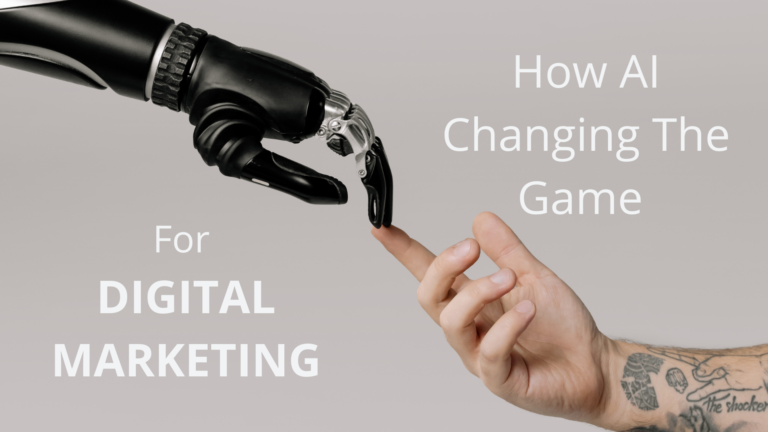Date of publication:
07 Feb. 24How AI is revolutionizing business
Artificial intelligence is rapidly transforming the business world. AI technologies are opening up unprecedented opportunities for companies to automate processes, analyze data, make predictions, and improve efficiency.
According to a PwC study, AI adoption could add up to $15.7 trillion to global GDP by 2030. Let’s break down exactly how AI is changing modern business.

Key Applications Of AI In Business
Artificial Intelligence is finding increasing applications in various business processes and fields. Let’s take a look at the main areas where AI is already demonstrating high efficiency.
- Automation of routine tasks. One of the main advantages of AI is the ability to automate repetitive tasks, freeing up employees’ time for more important work. For example, AI-powered chatbots can handle simple customer queries, while computer vision systems check product quality.
- Big data analytics. With AI, companies can find valuable insights in huge data sets. Machine learning technologies identify trends, patterns, and correlations that cannot be discovered manually. This helps to make more informed business decisions.
- Predictive analytics. Based on accumulated data, AI can make accurate predictions about demand, prices, sales performance, and other important metrics. This gives companies information for strategic planning.
- Recommendation systems. AI-powered recommendation services (for example, those used by Netflix and Amazon) help show relevant content and products to each user. This increases customer engagement and boosts sales.
- Customer service and support. AI-powered chatbots and voice assistants can quickly resolve simple customer queries around the clock. This saves time for customers and support staff. AI systems also analyze feedback and categorize conversations to improve service.
Key Artificial Intelligence Technologies For Business
Machine learning is at the heart of most artificial intelligence applications for business. This technology allows algorithms to find patterns in data on their own and improve their accuracy based on experience. With machine learning, AI systems can make demand predictions, analyze customer preferences, recognize images, and more. Another important technology is neural networks – artificial intelligence models inspired by the structure of the brain’s biological neural networks. They are particularly effective for pattern recognition, speech recognition, and analyzing unstructured data. Neural networks are the basis for computer vision systems, recommendation services, chatbots and other AI applications. Another key area is natural language processing, which allows analyzing and understanding human speech and text. Thanks to NLP, chatbots can conduct dialogs and AI systems can extract data from unstructured texts. This technology is indispensable for AI to work with large data sets in natural language.
Benefits of AI Implementation For Businesses
Implementing artificial intelligence technology into business processes can bring many benefits to companies.
- Increased efficiency in operations. Through automation, AI helps companies improve the speed and quality of business processes, reduce errors, and perform operations at lower costs.
- Cost reduction. By applying AI technologies in areas such as data analytics, logistics, manufacturing, and customer service, companies can optimize costs. This leads to increased profits and competitive advantage for businesses.
- Increased profits. AI not only reduces costs but also helps increase revenue. For example, accurate AI-based demand forecasts help sell more products, and personalized recommendations increase conversion rates and average check.
- Improving product and service quality. AI-based computer vision systems monitor product quality in manufacturing. And chatbots and ASOs solve simple customer queries quickly and without errors. All of this improves product and service quality.
- Personalizing customer interactions. Through data analytics, AI can provide personalized recommendations for each customer. And chatbots lead the dialog, taking into account the user’s preferences. This increases customer loyalty and satisfaction.
Challenges of Implementing AI in Business Processes
While the application of artificial intelligence technology offers significant opportunities for businesses, its implementation also comes with a number of challenges. Let’s discuss the major challenges that companies may face while integrating AI.
- Data preparation. AI requires large amounts of high-quality structured data to work effectively. For many companies, preparing such data is a challenge.
- Training AI models. Machine learning models need constant tweaking and retraining. This requires highly skilled AI specialists and significant computing power.
- Integrating AI into the IT infrastructure. For AI to work effectively, it needs to be properly integrated with other information systems of the company. This is a complex technical task.
- Legal and ethical aspects. When implementing AI, legal norms and ethical principles must be taken into account to avoid discrimination and violation of user privacy.
- Cybersecurity. You need to ensure that AI data and algorithms are protected from cyberattacks. Vulnerabilities in AI systems can lead to serious losses for businesses.
Thus, AI technologies open up huge opportunities for business optimization and growth. The main thing is to integrate AI competently, taking into account all the nuances and risks. Then AI will become one of the key factors of a company’s competitiveness in today’s environment.



